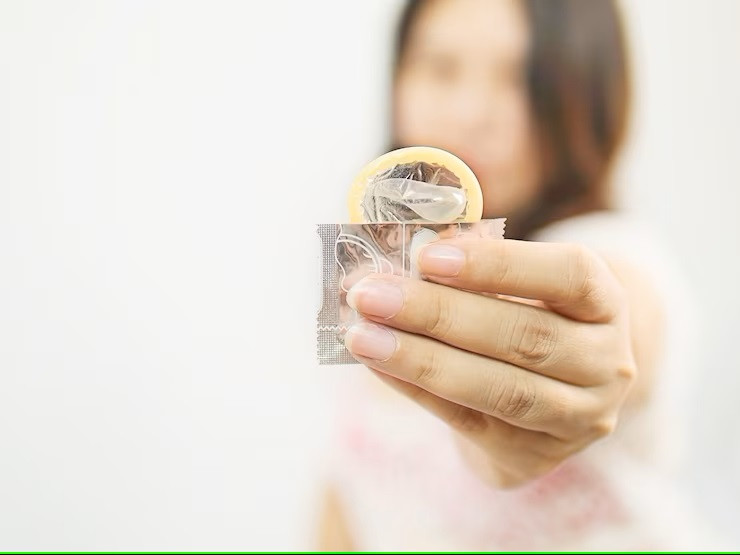Sifilis adalah infeksi bakteri yang bisa disebarkan melalui kontak seksual. Pada kasus sifilis yang menginfeksi anak, anak bisa tertular akibat kekerasan seksual atau dari ibu ke bayi yang belum lahir.
Pada dasarnya sifilis dikategorikan menjadi empat tahap, yaitu sifilis primer, sekunder, laten dan tersier. Setiap tahapan memiliki tanda dan gejala berbeda. Seperti apa tanda dan gejala sifilis pada anak?
Tahap Pertama Sifilis (Tahap Primer)
Tanda pertama sifilis adalah adanya tukak atau ulkus kecil pada tempat masuknya bakteri ke dalam tubuh, seperti alat kelamin, mulut atau dubur. Luka berbentuk bulat dan terasa keras. Penderitanya bisa memiliki satu atau beberapa ulkus sekitar 3 minggu setelah terpapar sifilis. Kadang luka ini tidak disadari oleh pasien karena luka tidak menimbulkan rasa sakit dan akan sembuh sendiri dalam 3-6 minggu.
Namun, menghilangnya luka bukan berarti sifilis sudah sembuh terutama jika Anda tidak menerima pengobatan. Hilangnya tanda sifilis di tahap pertama menandakan bahwa infeksi sedang berkembang ke tahap selanjutnya.
Baca Juga: Tanda-Tanda Lidah Putih yang Disebabkan Sifilis
Tahap Kedua Sifilis (Tahap Sekunder)
Tahap kedua sifilis terjadi sekitar beberapa minggu setelah luka dari sifilis primer hilang. Pada tahap sekunder ini muncul ruam sifilis baru di area kelamin atau mulut yang bisa menyebar ke seluruh tubuh, telapak tangan dan kaki. Tahap sekunder bisa berlangsung selama 1-6 bulan.
Ruam tidak terasa gatal namun bisa disertai dengan gejala lain seperti:
- Demam
- Sakit tenggorokan
- Kelelahan
- Munculnya luka seperti kutil
- Nyeri otot
- Penurunan berat badan
- Sakit kepala
- Rambut rontok
- Pembengkakan kelenjar getah bening
Gejala ini biasanya akan hilang dalam beberapa minggu namun datang dan pergi selama setahun. Gejalanya akan semakin memburuk dan berkembang menjadi tahap selanjutnya, yaitu tahap laten.
Tahap Ketiga Sifilis (Tahap Laten)
Tanpa pengobatan, sifilis akan berkembang memasuki tahap laten. Pada tahap ini infeksi bisa bertahan hingga 20 tahun dan tersembunyi, di mana Anda bisa tidak mengalami gejala sama sekali. Pada tahap ini, gejala dapat tidak muncul kembali atau penyakit bisa terus berkembang memasuki tahap selanjutnya.
Baca Juga: Bahaya Infeksi Penyakit Menular Seksual, Dapat Menginfeksi Mata
Sifilis Tahap Lanjut (Tahap Tersier)
Pada tahap lanjut ini sebagian orang mungkin mengalami masalah kesehatan yang berkembang perlahan, di antaranya:
- Kerusakan otak
- Demensia
- Gangguan kognitif lainnya
- Penyakit jantung
- Gangguan pergerakan tubuh dan otot tubuh
- Kerusakan saraf
- Kejang
- Gangguan penglihatan termasuk kebutaan
Bayi sebagian besar terinfeksi sifilis akibat tertular dari ibu saat dalam kandungan atau pada proses persalinan. Sebaiknya saat bayi dilahirkan, bila sudah diketahui bahwa ibu positif sifilis, bayi segera mendapatkan skrining agar bisa memperoleh pengobatan sedini mungkin.
Sifilis dapat diobati dengan antibiotik tertentu sehingga tidak berkembang menjadi sifilis tahap selanjutnya. Ketika pengobatan yang tepat diberikan gejalanya termasuk luka yang muncul akan segera hilang. Setelah pengobatan diberikan masih diperlukan tes darah untuk memastikan bahwa infeksinya telah sembuh total. Konsultasikan dengan dokter melalui aplikasi Ai Care apabila menemukan tanda dan gejala sifilis pada anak Anda.
Mau tahu informasi seputar kehamilan, menyusui, kesehatan wanita dan anak-anak? Cek di sini, ya!
- dr Hanifa Rahma
Mayo Clinic (2021). Syphilis. Available from: https://www.mayoclinic.org/diseases-conditions/syphilis/symptoms-causes/syc-20351756
Children's Health. Pediatric Syphilis. Available from: https://www.childrens.com/specialties-services/conditions/syphilis
Kids Health (2018). Syphilis. Available from: https://kidshealth.org/en/parents/syphilis.html
Cleveland Clinic (2022). Syphilis. Available from: https://my.clevelandclinic.org/health/diseases/4622-syphilis












